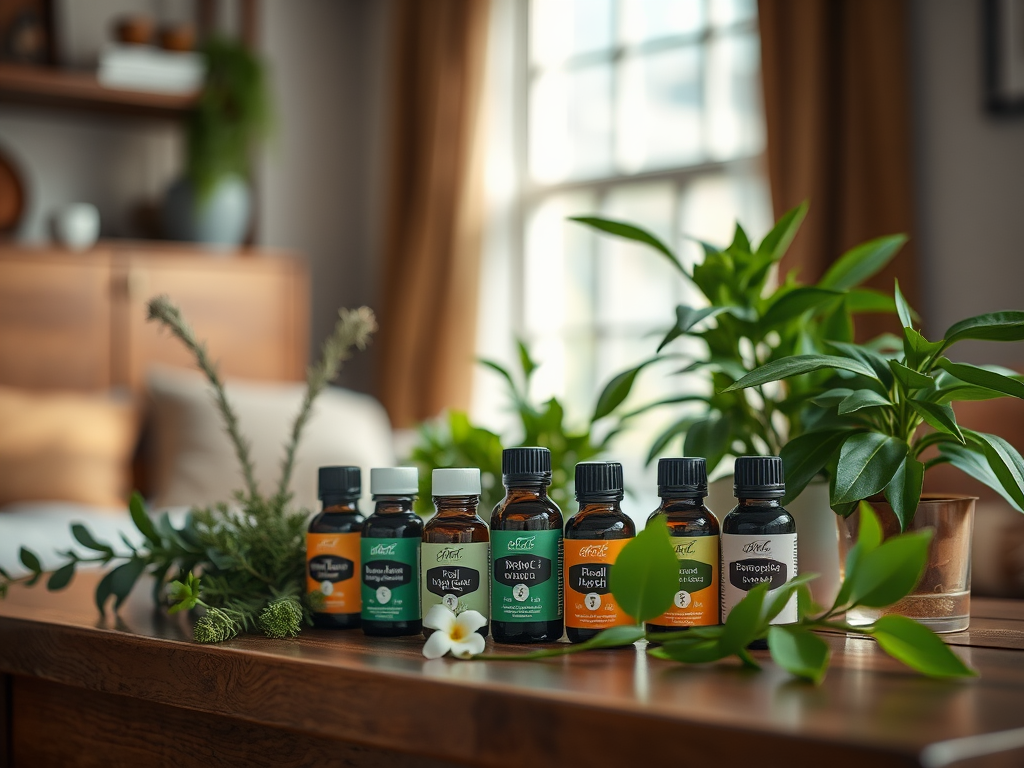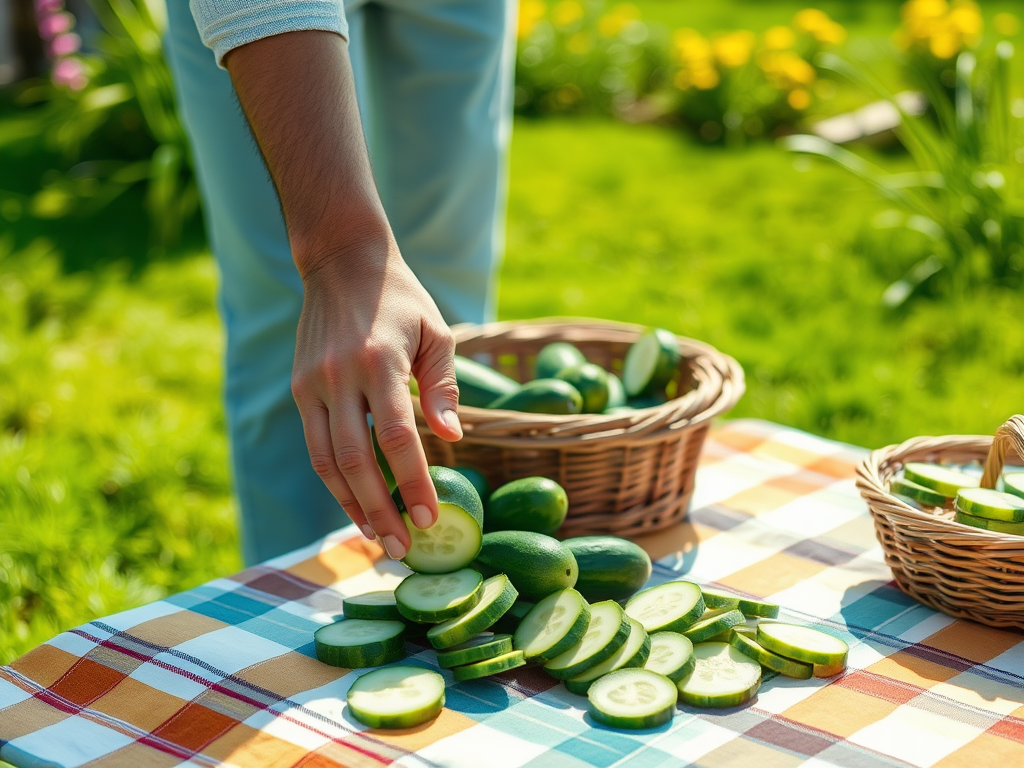Exploring Natural Wasp Repellents: What Works and What Doesn’t
As the warm weather beckons outdoor enthusiasts to bask in the sun, the unwelcome presence of wasps often threatens to ruin a pleasant afternoon. These often misunderstood insects play crucial roles in our ecosystem. However, when they start invading picnics or backyard barbecues, they can quickly transform a delightful gathering into a source of anxiety. Understanding wasps, coupled with knowledge about effective natural repellents, can empower us to enjoy the outdoors without fear. With an increasing inclination towards eco-friendly practices, exploring natural alternatives becomes essential. But what truly works, and what merely falls prey to myth? Let’s delve deep into the world of natural wasp repellents.
Understanding Wasps and Their Behavior

Wasps are fascinating creatures that contribute to pollination and pest control. Unlike bees, which focus on nectar, many wasp species hunt other insects or gather sweet substances from plants. They are most active during the warmer months, particularly late summer and early fall. This is the time when they are building nests and foraging for food, making their presence more noticeable. When their behavior is understood, it becomes easier to manage encounters with them. When we recognize these patterns, we can structure our outdoor activities to minimize unpleasant surprises.
It’s crucial to note that wasps are particularly attracted to food, sugary drinks, and even food left uncovered. That’s why during outdoor activities, we often see them buzzing around plates and cups, leading to the anxiety they can provoke. Therefore, implementing strategies to keep them at bay becomes imperative. Among these strategies are natural repellents that can effectively deter their unwelcome presence. These alternatives not only serve to protect our enjoyment of nature but also contribute to an overall environment that respects local wildlife.
The Need for Natural Wasp Repellents

As awareness grows regarding the potential dangers of chemical repellents, many people search for natural alternatives to keep wasps away. Chemical solutions may be quick fixes, but they often carry health risks for both humans and pets. Reports of allergic reactions to chemicals or the impact on the surrounding ecosystem have propelled many toward natural options. Anecdotal evidence suggests that more people are turning to natural repellents, spurred on by the desire for a safer and more environmentally responsible lifestyle.
For instance, statistics have shown a remarkable rise in DIY pest control searches online. Customers are increasingly looking for homemade solutions that are not only effective but also safe. Some natural alternatives and their popularity have surged, showcasing their effectiveness and usability across various settings. This trend of choosing nature-based options demonstrates a growing consciousness about the substances we use around our homes. By exploring what actual natural solutions work, consumers can make informed decisions that protect themselves while being kinder to the planet.
Common Natural Wasp Repellents
Various natural ingredients are believed to have wasp-repelling properties. Understanding how these ingredients function and the best ways to use them is essential. As it happens, several natural options are readily available, making it easier for anyone to adopt using them. Here are some common natural repellents we’ve gathered:
- Vinegar
- Essential Oils
- Cucumber
Below is a table summarizing each repellent along with its effectiveness and how to use it:
| Repellent | Effectiveness | Application Method |
|---|---|---|
| Vinegar | Moderate | DIY traps and sprays |
| Essential Oils | High | Diffusers and homemade sprays |
| Cucumber | Low | Direct placement around picnic areas |
Vinegar
Vinegar is a household staple known for its versatility. It serves as a natural repellent due to its strong smell. You can create a simple DIY wasp trap using vinegar by mixing equal parts of vinegar and water in a container. Adding a few drops of dish soap can also increase its effectiveness. The soap breaks the surface tension, preventing wasps from escaping. Anecdotal evidence suggests that many homeowners have found success in using vinegar traps to reduce wasp activity around their patios.
Essential Oils
Essential oils are another popular option for natural pest control. Oils like peppermint, clove, and lemongrass are noted for their repelling properties. You can easily create a spray by diluting essential oils with water and a small amount of dish soap. Spraying this mixture around your outdoor space can help keep wasps at bay. These oils not only serve as repellents but can also leave behind a pleasant aroma. It’s important to note that while natural, essential oils can still cause irritation; thus, patch-testing is recommended.
Cucumber
The idea that cucumber acts as a wasp repellent is often debated. While some believe that placing cucumber peels around food can deter wasps, scientific evidence supporting this claim is scant. However, cucumbers do hold benefits for other pests, making them a worthwhile addition to your pest control arsenal. If you enjoy using cucumber, it may be best to take a balanced approach, combining it with other, more effective options for comprehensive protection.
What Doesn’t Work: Misconceptions About Natural Repellents
While the allure of natural remedies is strong, not all methods are effective. For instance, some common misconceptions can lead us to rely on ineffective solutions. One popular myth is that certain plants, such as marigolds, repel wasps. However, research shows that these plants generally have little to no effect on wasp behavior. This can lead to frustration, as people may find themselves facing encounters despite their efforts to “naturalize” their space.
Understanding which natural solutions are based on myth can prevent wasted time and effort. Additionally, while some essential oils show promise, their effectiveness may vary significantly between individuals. What works for one person may not yield similar results for another. This inconsistency can leave users confused about the right approach, emphasizing the importance of knowledge when selecting natural repellents.
Conclusion
Natural wasp repellents can provide useful alternatives to chemical solutions, but understanding their limitations is key. These options can effectively help manage wasp populations while promoting a healthier environment. Each repellent comes with its strengths, varying effectiveness, and application methods. Through careful selection and use, homeowners can create a more enjoyable outdoor atmosphere.
While some natural repellents offer promising results, relying solely on them may not always yield complete protection. It is always wise to remain vigilant and combine various strategies based on your specific situation. Through informed choices and efficient preventive measures, we can enjoy our outdoor spaces without fear of unwelcome stings.
Frequently Asked Questions
- What is the most effective natural wasp repellent? Vinegar and essential oils like peppermint are commonly cited as effective.
- Are natural repellents safe for pets and children? Most natural repellents are generally safe, but always check specific ingredients for potential allergies or sensitivities.
- Can I combine different natural repellents for better results? Yes, experimenting with a mix of natural ingredients may enhance effectiveness.
- How do I know if a natural repellent is working? Monitor your outdoor spaces for reduced wasp activity and nest-building behavior.
- Is there a way to prevent wasp nests from forming? Yes, keep outdoor areas clean, remove food sources, and seal potential nesting spots.
